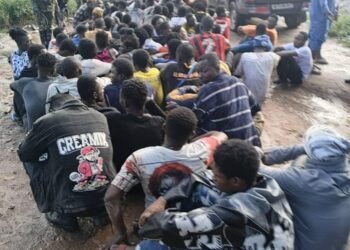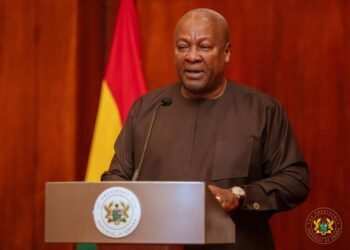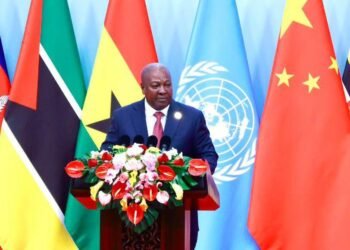Dr. Isaac Yaw Asiedu, a seasoned columnist and political analyst, has outlined why the government led by former President Nana Addo Dankwa Akufo-Addo lost its way and what lessons the governing National Democratic Congress (NDC) under President John Dramani Mahama must take seriously if it intends to avoid repeating Ghana’s cycle of economic and governance setbacks.
According to Dr. Asiedu, the trajectory of the Akufo-Addo administration between 2017 and 2024 serves as a reminder that big promises without structural discipline often collapse under pressure.
He recalled how the administration began with overwhelming public goodwill and flagship initiatives such as Free Senior High School, One District One Factory, and digitisation, yet ended its tenure presiding over debt distress and a historic default in 2022.
“This arc is a study in early momentum, policy overreach, weak governance controls, and electoral-cycle indiscipline,” Dr. Asiedu said, stressing that the administration’s fall provides an opportunity for the NDC to reform governance culture.
He traced the turning point to widening fiscal deficits, rising debt, and eventual loss of credibility in 2022, when Ghana suspended most external debt servicing and turned to the International Monetary Fund for a $3 billion programme.
The government, he observed, claimed the economy was “turning the corner” after IMF negotiations, but fiscal outcomes in 2024 revealed overspending in an election year and mounting arrears.
Dr. Asiedu noted that such indiscipline undermined confidence. The E-Levy, for instance, was presented as a game-changer but underperformed in its first year, damaging credibility. Even with later improvements, reputational scars lingered.

Failures, Delivery Gaps, and Scandals
The analyst stressed that corruption perception indices stagnated during the period, and enforcement mechanisms weakened. He pointed to delays in Auditor-General surcharges and the limited effectiveness of the Office of the Special Prosecutor.
“The National Cathedral controversy became a symbol of weak controls. Audits flagged unsupported payments and poor financial discipline during a period when citizens were asked to accept austerity”
Dr. Isaac Yaw Asiedu, Columnist and Political Analyst
Resource governance failures compounded these problems. Despite tough rhetoric, illegal mining worsened, rivers became polluted, and cocoa-growing areas suffered devastation. Investigations in 2024 and 2025 exposed smuggling losses and environmental damage that eroded both fiscal space and public confidence.
The columnist also reflected on institutional weaknesses that left major projects struggling. Free SHS expanded access but strained quality, with the double-track system becoming a stop-gap burden. Similarly, 1D1F generated successes but also left unresolved questions about sustainability, job numbers, and the actual operational status of many factories.
Employment concerns remained pressing. Dr. Asiedu noted that joblessness peaked in 2023 before easing slightly by 2024, but “youth unemployment persisted at troubling levels, showing that stabilisation had not translated into real opportunity.”
NDC’s Roadmap for Credibility
Turning to lessons for the governing NDC, Dr. Asiedu emphasised that credibility must be the cornerstone of policy. “Markets and citizens will judge you by arrears and quarterly deficits, not speeches,” he warned, arguing that fiscal control must underpin all other reforms.
He called for an immediate audit of arrears, a transparent repayment schedule, and strict adherence to IMF programme benchmarks while using a National Economic Dialogue to negotiate realistic flexibilities.
He urged the Mahama administration to shrink and professionalise the centre of government by capping ministerial appointments, consolidating portfolios, and empowering a lean delivery unit accountable to the public through quarterly scorecards. “The 2017 ‘elephant-size government’ saga is a cautionary tale – don’t repeat it.”
The analyst stressed that anti-corruption measures must shift from headlines to tangible enforcement. He recommended resourcing the Auditor-General to enforce surcharges, “mandating open contracting across ministries and state enterprises, and ensuring high-profile investigations lead to prosecutorial closure rather than stalemate.”
On natural resource governance, Dr. Asiedu argued that mining oversight must focus on formalisation, traceability, and enforcement of ecological no-go zones. He called for mercury-free technology, cooperative incentives, and customs reform to close smuggling loopholes.
“Recalibrate Free SHS for quality and equity. Keep access universal but reverse double-track through targeted capital investment; optimise placements; and pilot need-sensitive support for non-tuition burdens (boarding, feeding) while protecting poor households. Build a bipartisan pact on teacher supply, textbooks and labs so outcomes rise with access”
Dr. Isaac Yaw Asiedu, Columnist and Political Analyst
Industrialisation under 1D1F, he suggested, should pivot toward clusters and export-ready value chains such as cocoa processing, pharmaceuticals, and light manufacturing. Transparent publication of operational data and fiscal costs would help prune non-performing projects.

Avoiding Prestige Projects
Dr. Asiedu cautioned against prestige-driven projects with weak returns, urging that unfinished hospitals and schools be completed before embarking on new monuments. Transparent dashboards, he argued, can prevent another National Cathedral-style controversy.
Above all, he emphasised job creation as the ultimate benchmark. Linking tax reliefs to verifiable hiring, enforcing payment discipline for small suppliers, and tying diaspora capital to municipal infrastructure could provide tangible relief for citizens.
“Akufo-Addo’s years remind us that big ideas without hard governance end in arrears, audits and anger. The NDC must prove that it can not only change policies but also change the culture of state management’
Dr. Isaac Yaw Asiedu, Columnist and Political Analyst
For him, Ghana’s path forward rests on fiscal credibility, stronger institutions, and disciplined delivery. The alternative, he warned, is a repeat of cycles that burden the economy and betray public trust.
READ ALSO: Mr Eazi Acquires Rights To African Music Catalogues





















